Search
Summary 
Loading AI-generated summary based on World History Encyclopedia articles ...
Search Results

Definition
British Industrial Revolution
The British Industrial Revolution (1760-1840) brought innovative mechanisation and deep social change. The process saw the invention of steam-powered machines, which were used in factories in ever-growing urban centres. Agriculture remained...
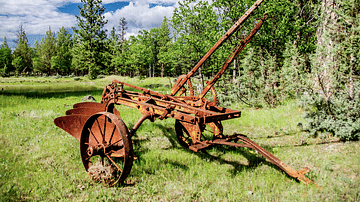
Article
Agriculture in the British Industrial Revolution
Agriculture, like most other areas of working life, was greatly affected by the machines invented during the Industrial Revolution. Agriculture in Britain and elsewhere had made leaps forward in the 18th century, and its success released...

Article
Why the Industrial Revolution Started in Britain
The Industrial Revolution saw a wave of technological and social changes in many countries of the world in the 18th and 19th centuries, but it began in Britain for a number of specific reasons. Britain had cheap energy with its abundant supply...
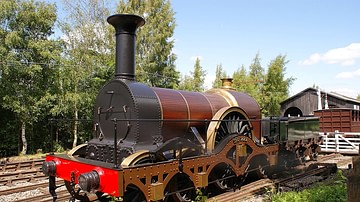
Article
The Railways in the British Industrial Revolution
The railways were perhaps the most visible element of the Industrial Revolution for many. Trains powered by steam engines carried goods and people faster than ever before and reached new destinations, connecting businesses to new markets...
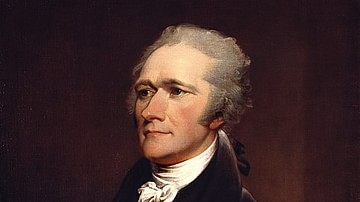
Definition
Alexander Hamilton
Alexander Hamilton (1755/57-1804) was a lawyer and politician, often recognized as a Founding Father of the United States. He served as George Washington's aide-de-camp during the American Revolution, before going on to become the first US...
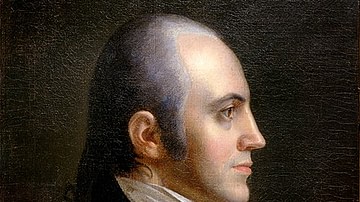
Definition
Aaron Burr
Aaron Burr (1756-1836) was an American politician and lawyer, who served as the third vice president of the United States (1801-1805). His reputation as a US Founding Father was marred by his killing of political rival Alexander Hamilton...
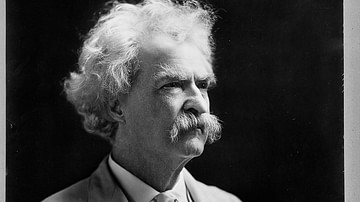
Definition
Mark Twain
Mark Twain is the pen name of Samuel Langhorne Clemens (1835-1910), an American humorist, journalist, lecturer, and novelist. He was the voice of his generation and one of the most celebrated authors of the late 19th century, writing some...
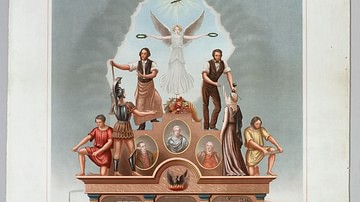
Article
Trade Unions in the British Industrial Revolution
Trade unions were formed in Britain during the Industrial Revolution (1760-1840) to protect workers from unnecessary risks using dangerous machines, unhealthy working conditions, and excessive hours of work. The trade union movement was vigorously...

Article
Slavery in Colonial America
Slavery in Colonial America, defined as white English settlers enslaving Africans, began in 1640 in the Jamestown Colony of Virginia but had already been embraced as policy prior to that date with the enslavement and deportation of Native...
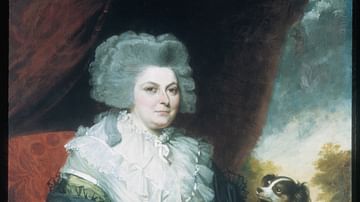
Article
Pets in Colonial America
Pets in Colonial America were kept by the colonists for the same reasons they were in Europe: for companionship and, in the case of dogs, for protection, hunting, and herding. Cats controlled vermin in homes and barns until the 18th century...